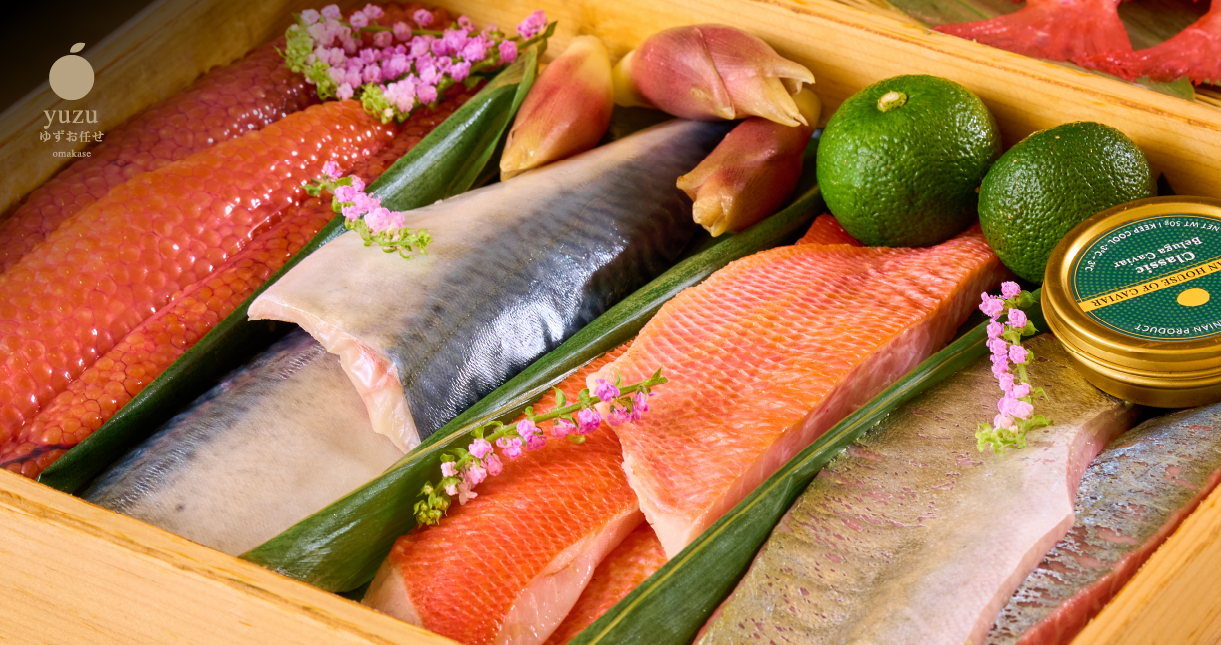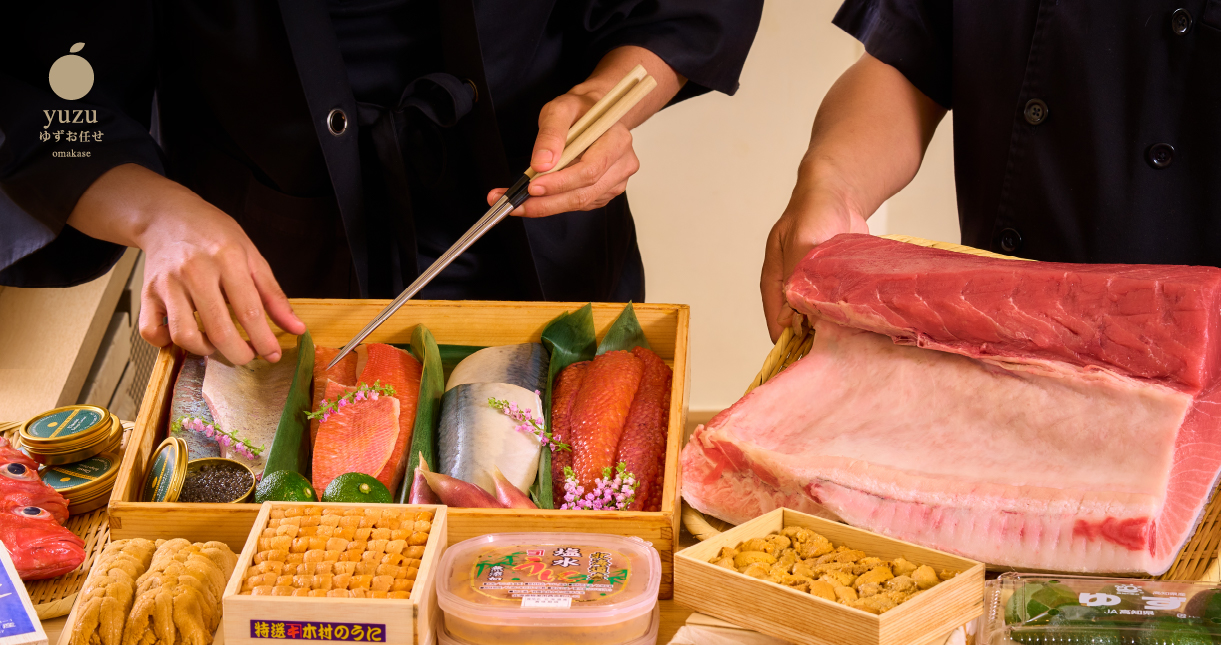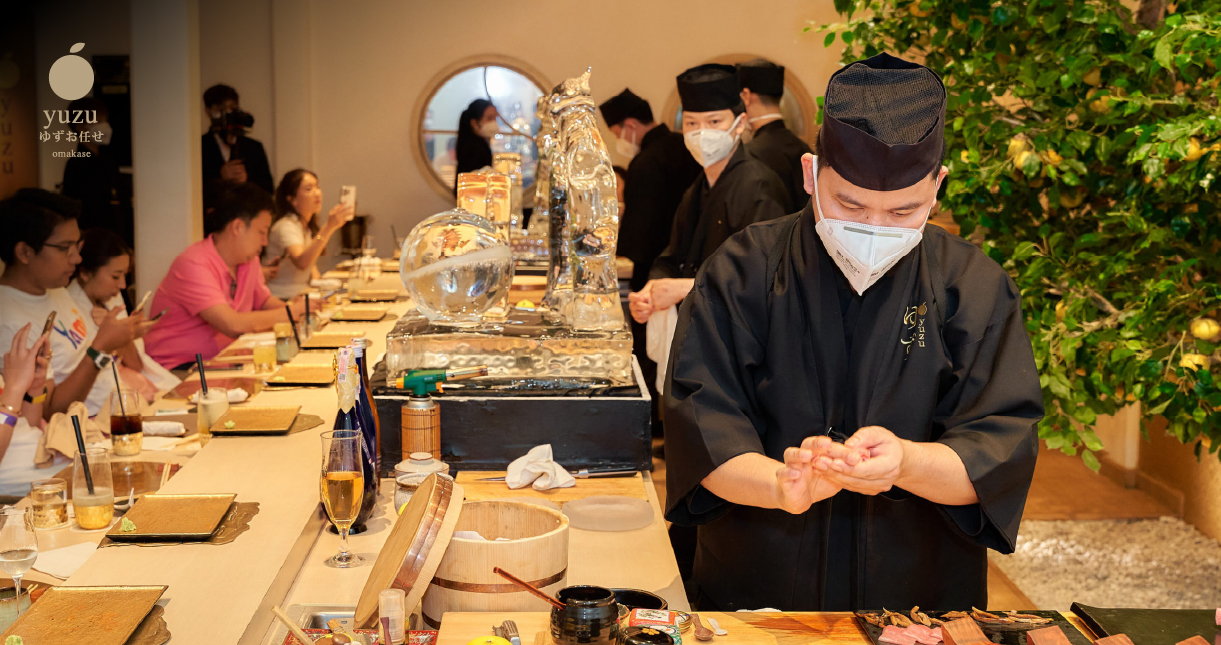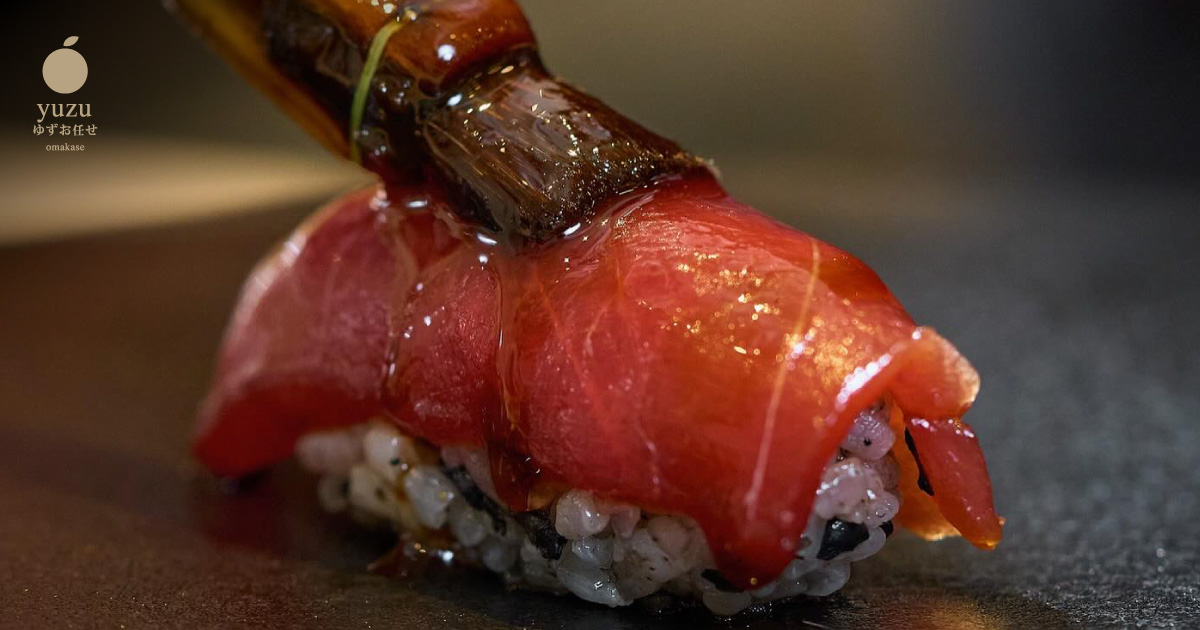
Sustainability Matters: Yuzu Omakase’s Commitment to Responsible Dining
In today's world, sustainability and environmental stewardship have become crucial aspects of the culinary industry. Yuzu Omakase, located at 258/9-10 Siam Square Soi 3, 2F Pathumwan in Bangkok, stands as a beacon of responsible dining, demonstrating an unwavering commitment to sustainability. This dedication is reflected in their sourcing practices, efforts to reduce food waste, and overall approach to environmental stewardship. Let's delve into the various ways Yuzu Omakase champions sustainability and why these practices matter.
Well-Being ● 2024 Jul 25
Sustainability Matters: Yuzu Omakase's Commitment to Responsible Dining

Sustainable Sourcing: The Foundation of Responsible Dining
Yuzu Omakase prioritizes sustainable sourcing, ensuring that the ingredients used are not only of the highest quality but also obtained through environmentally responsible methods. This commitment begins with careful selection of suppliers and extends to every ingredient used in their exquisite dishes.
Sustainable Seafood
Seafood is a cornerstone of Japanese cuisine, and Yuzu Omakase ensures that all seafood is sourced sustainably. By partnering with suppliers who follow responsible fishing practices, the restaurant helps protect marine ecosystems and promote biodiversity. Yuzu Omakase sources from fisheries certified by organizations like the Marine Stewardship Council (MSC), which set stringent standards for sustainable fishing.
Organic and Local Produce
In addition to sustainable seafood, Yuzu Omakase places a strong emphasis on using organic and locally sourced produce. Organic farming avoids synthetic pesticides and fertilizers, promoting healthier soils and ecosystems. By sourcing produce locally, Yuzu Omakase supports local farmers and reduces the carbon footprint associated with transporting ingredients over long distances. This practice not only ensures fresher ingredients but also strengthens the local economy.
Seasonal Ingredients
Utilizing seasonal ingredients is another key aspect of Yuzu Omakase's sustainable sourcing strategy. By designing their menu around the availability of seasonal produce, the restaurant minimizes the environmental impact associated with growing out-of-season crops. This practice also ensures that guests enjoy the freshest and most flavorful dishes possible, highlighting nature's bounty throughout the year.
Reducing Food Waste: A Commitment to Efficiency and Innovation
Reducing food waste is a cornerstone of Yuzu Omakase's sustainability efforts. The restaurant implements various strategies to minimize waste and promote a more efficient use of resources.

Nose-to-Tail and Root-to-Stem Cooking
One of the most effective ways to reduce food waste is through nose-to-tail and root-to-stem cooking, where every part of an ingredient is used. Yuzu Omakase's chefs are adept at incorporating all parts of fish, vegetables, and other ingredients into their dishes. For instance, fish bones may be used to make flavorful broths, while vegetable trimmings can be transformed into creative garnishes or side dishes. This approach not only reduces waste but also showcases the culinary team's creativity and skill.
Composting and Recycling
Yuzu Omakase has established a comprehensive composting and recycling program. Organic waste, such as food scraps and kitchen waste, is composted rather than sent to landfills. The resulting compost can be used to enrich soil in local farms and gardens, closing the loop on food waste. Additionally, the restaurant recycles materials like glass, plastic, and cardboard, ensuring that as much waste as possible is diverted from landfills.
Reducing Single-Use Plastics
To further minimize environmental impact, Yuzu Omakase has significantly reduced its use of single-use plastics. The restaurant opts for reusable or biodegradable alternatives, such as bamboo and paper straws, and compostable takeout containers. This commitment to reducing plastic waste helps mitigate the harmful effects of plastic pollution on the environment.
Eco-Friendly Practices in the Kitchen and Beyond
Beyond sourcing and waste reduction, Yuzu Omakase implements a range of eco-friendly practices throughout its operations. These efforts are aimed at minimizing the restaurant's overall environmental footprint and promoting sustainability in all aspects of its business.
Energy-Efficient Appliances
The kitchen at Yuzu Omakase is equipped with energy-efficient appliances that help reduce energy consumption. From induction cooktops to energy-star-rated refrigeration units, these appliances are chosen for their ability to perform efficiently while consuming less power. This not only helps in reducing the restaurant's carbon footprint but also cuts down on operational costs.
Water Conservation
Water conservation is another critical aspect of Yuzu Omakase's sustainability efforts. The restaurant employs water-saving devices such as low-flow faucets and dishwashers that use less water per cycle. Additionally, staff are trained in water-efficient practices, such as using minimal water for cleaning and reusing water where appropriate.
Sustainable Interior Design
Yuzu Omakase’s commitment to sustainability extends to its interior design. The restaurant features eco-friendly design elements, such as reclaimed wood furniture, energy-efficient lighting, and natural décor. These elements create a warm and inviting atmosphere while minimizing environmental impact.
Community Engagement and Education
Yuzu Omakase believes that promoting sustainability goes beyond its own practices. The restaurant actively engages with the local community and educates both staff and guests about the importance of environmental stewardship.

Supporting Local Communities
By sourcing ingredients locally and engaging with local farmers and artisans, Yuzu Omakase supports the local economy and fosters a sense of community. The restaurant also participates in local farmers' markets and community events, promoting a culture of sustainability and responsible dining.
Educational Initiatives
Yuzu Omakase regularly hosts events and workshops focused on sustainability. These include cooking classes that emphasize the use of sustainable ingredients and waste reduction techniques, as well as seminars on the importance of sustainable practices in the culinary industry. By educating guests and the community, Yuzu Omakase aims to inspire others to adopt eco-friendly practices in their own lives.
Future Goals and Initiatives
Yuzu Omakase is continuously striving to enhance its sustainability efforts. The restaurant has set ambitious goals for the future to further reduce its environmental impact and promote responsible dining.
Achieving Zero Waste
One of Yuzu Omakase’s long-term goals is to achieve zero waste. This involves continually improving waste management practices, reducing waste generation, and finding innovative ways to repurpose or recycle waste. The restaurant is exploring partnerships with waste management companies to develop advanced recycling and composting solutions.
Expanding Sustainable Sourcing
Yuzu Omakase is committed to expanding its sustainable sourcing practices. The restaurant is actively seeking new suppliers who adhere to responsible and ethical practices, ensuring that all ingredients used are environmentally friendly. This includes exploring options for sourcing more organic and locally produced ingredients.
Investing in Renewable Energy
Investing in renewable energy sources is another goal for Yuzu Omakase. The restaurant is exploring the feasibility of installing solar panels and other renewable energy systems to power its operations. By transitioning to renewable energy, Yuzu Omakase aims to further reduce its carbon footprint and contribute to a cleaner environment.
Continuous Improvement and Innovation
Sustainability is an ongoing journey, and Yuzu Omakase is committed to continuous improvement and innovation. The restaurant regularly reviews its practices and seeks new ways to enhance its sustainability efforts. This includes staying updated on the latest sustainability trends and technologies and being open to adopting new methods that align with its commitment to environmental stewardship.
Conclusion
Yuzu Omakase's dedication to sustainability is evident in every aspect of its operations. From sourcing ingredients responsibly to reducing food waste and implementing eco-friendly practices, the restaurant is a leader in promoting responsible dining. By choosing to dine at Yuzu Omakase, guests can enjoy an exceptional culinary experience while supporting sustainable practices that contribute to a healthier planet. As the restaurant continues to innovate and set higher standards for sustainability, it serves as an inspiring model for others in the industry, demonstrating that culinary excellence and environmental stewardship can go hand in hand.

RELATE







